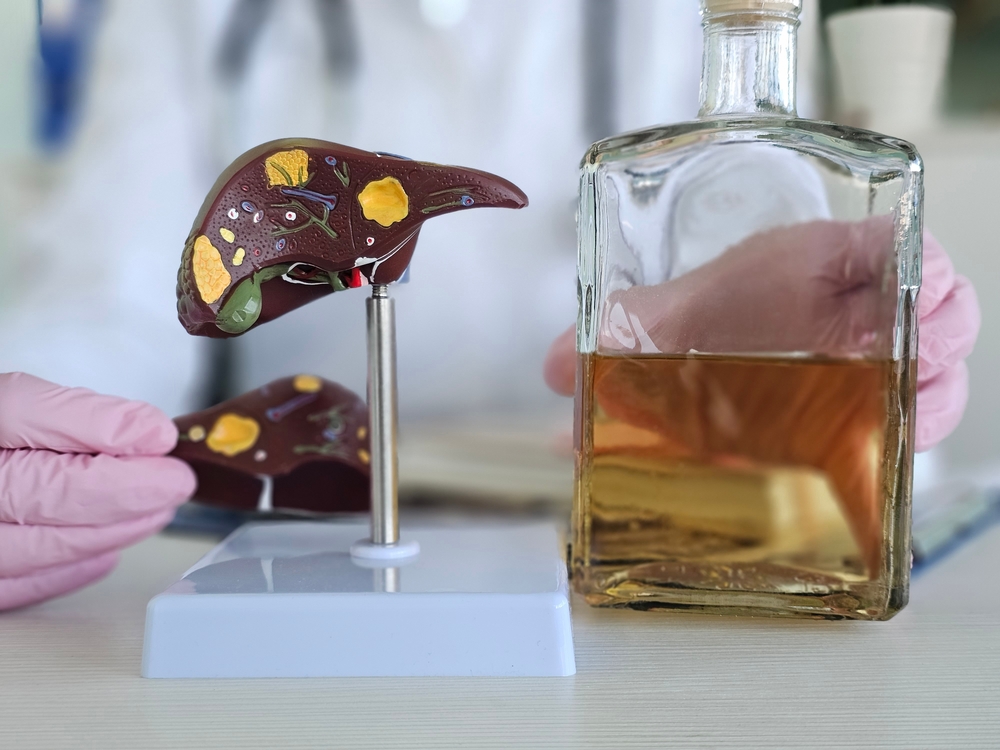Understanding the inner workings of the human body can be as intriguing as it is enlightening. It’s a complex machine, finely tuned and full of surprises that continue to amaze scientists and laypeople alike. There are countless facts that highlight the body’s ability to adapt, heal, and perform feats that seem beyond comprehension. Dive into these 13 fascinating facts about the human body, and discover a world within yourself that’s both ordinary and extraordinary.
1. Your Heartbeat Syncs With The Music You Listen To

Ever noticed how your body seems to sway to the beat of your favorite song? That’s because your heart actually synchronizes with the rhythm of the music you’re listening to. The tempo of the music can influence your heart rate — upbeat tracks can increase your heartbeat, while slower tunes may calm it down. This physiological response is a testament to how deeply intertwined our senses and bodily functions are.
A study conducted by the University of Maryland Medical Center found that listening to joyful music results in improved blood vessel function. The researchers observed dilation in blood vessels that improved blood flow, suggesting a direct link between music and cardiovascular health. It’s a compelling reason to curate your playlist not just for your mood but also for your heart. So next time you reach for your headphones, know that you’re also giving your heart a little workout.
2. Your Bones Are Stronger Than Steel

It might be hard to believe, but ounce for ounce, human bone is stronger than steel. If you compare the two by weight, bone can withstand more pressure without breaking. This is due to its composite structure, which is both light and strong, making it incredibly efficient at absorbing impact. Nature has perfected this design to allow for strength without the burden of excessive weight.
However, that strength doesn’t mean bones are unbreakable. The balance of being lightweight yet durable makes them susceptible to breaks and fractures under excessive force. It’s a delicate equilibrium that allows us to move with agility while maintaining structural support. Understanding this can give you a new appreciation for the protective and supportive roles bones play in your daily life.
3. Your Brain Generates Enough Electricity To Power A Light Bulb

Your brain is a powerhouse, literally. It generates about 20 watts of electrical power, which is enough to power a small light bulb. This energy comes from the millions of neurons firing in your brain, constantly transmitting information throughout your body. It’s a small glimpse into the sheer energy and activity happening inside your head at any given moment.
The World Health Organization (WHO) recognizes mental health as a crucial component of overall health, emphasizing the importance of maintaining brain function. This electrical activity is critical for everything from simple movements to complex thoughts, highlighting the need for brain health. Keeping your brain healthy involves regular mental challenges, proper nutrition, and adequate rest. Remember, this dynamic organ needs care just as much as any other part of your body.
4. Your Body Can Glow in the Dark

Bioluminescence isn’t just for fireflies or deep-sea creatures — your body can emit light, too. Although not visible to the naked eye, the human body does produce a tiny amount of light, a phenomenon known as biophoton emission. This is a result of biochemical reactions within your cells, particularly during the metabolic process. In essence, we are all glowing, but just not brightly enough for it to be detected without sensitive instruments.
Research suggests that this photonic emission is linked to metabolic efficiency and oxidative stress. While it might sound esoteric, it’s an indicator of your biological state. Understanding and measuring this light could potentially offer insights into your health and well-being. Next time you look at the stars, remember you’re a part of this glowing universe, albeit on a much subtler scale.
5. You Shed Tons Of Skin Cells Every Year

Your skin is constantly renewing itself, shedding about 40,000 old skin cells every minute. Over a year, this adds up to nearly nine pounds of dead skin. This cycle of renewal helps protect your body from infection and maintains your skin’s integrity. It’s a vital process that underscores the dynamic nature of your body’s largest organ.
Dermatologists highlight the importance of regular skin care to support this natural process and prevent issues like acne or dryness. According to the American Academy of Dermatology, gentle exfoliation can help remove dead skin cells and promote healthier skin. By understanding this constant cycle, you can better appreciate the need for maintaining your skin’s health. Investing in a skincare routine isn’t just about aesthetics; it’s about supporting your body’s natural processes.
6. Your Stomach Lining Is Renewed Every Few Days

The stomach is a harsh environment, filled with acids strong enough to break down food — and yet, your stomach lining regenerates rapidly. This continuous renewal prevents the acids from digesting your stomach itself. Every few days, the cells in the stomach lining replace themselves, ensuring your digestive system can function without damaging itself. It’s an incredible demonstration of the body’s ability to protect and maintain itself.
This rapid turnover is a defense mechanism against the constant wear and tear from digesting food. It’s a reminder of the complexity and resilience inherent in our bodies. However, factors like stress, poor diet, and certain medications can disrupt this process, leading to issues like ulcers. So, taking care of your digestive health is crucial to supporting this remarkable regenerative ability.
7. Your Nose Can Detect Over A Trillion Scents

The human nose is a remarkable sensory organ capable of distinguishing between more than a trillion different scents. This surpasses previous estimates, highlighting the complexity and sensitivity of your olfactory senses. Your sense of smell is deeply tied to memory and emotion, often triggering vivid recall of past experiences. It’s a powerful reminder of how closely linked our senses are to our perception and cognition.
A study published in the journal Science explored the capabilities of the human olfactory system, revealing its extensive range. The research suggests that our sense of smell plays a more significant role in daily life than previously understood. It influences everything from taste to emotional responses, underscoring the importance of maintaining nasal health. Next time you catch a whiff of a familiar fragrance, think of it as a testament to the incredible capacity of your nose.
8. Your Body Contains Enough Iron To Forge A Nail

Iron is a crucial element in your body, playing a vital role in transporting oxygen through your blood. Surprisingly, you have just enough iron in your body to forge a small nail. This metal is primarily found in hemoglobin, the protein in red blood cells responsible for capturing and transporting oxygen. It’s a fascinating interplay between biology and chemistry, reflecting the precision of nature’s design.
Maintaining adequate iron levels is essential for energy, focus, and overall vitality. Iron deficiency can lead to anemia, characterized by fatigue and weakness. Dietary sources like red meat, spinach, and lentils can help maintain healthy iron levels. It’s a small but mighty component of your body that has a significant impact on your health.
9. Your Taste Buds Have A Short Lifespan

Taste buds are incredibly hardworking, and they have a surprisingly short lifespan of about 10 to 14 days. This rapid turnover means that your sense of taste is constantly being refreshed. It allows you to continue enjoying the flavors of your favorite foods and beverages without growing desensitized. The renewal of taste buds ensures that they remain sensitive and responsive to various tastes.
However, factors such as smoking, illness, or even aging can affect your sense of taste. This dynamic process means that maintaining oral health is essential for preserving your ability to enjoy flavors. Incorporating a variety of foods into your diet can help keep your taste buds engaged and healthy. So the next time you savor your favorite dish, remember the tiny taste buds working tirelessly to make that experience possible.
10. You Have a Unique Tongue Print

Just like fingerprints, your tongue has a unique print of its own. The grooves, lines, and textures on your tongue form a pattern that is distinct to you. This uniqueness is due to variations in taste buds, papillae, and other anatomical features. It’s a little-known fact that highlights the individuality inherent in every aspect of your body.
This uniqueness is being explored for potential applications in biometric security. Researchers are investigating how tongue prints could be used for identity verification, given their distinctiveness and the difficulty of replicating them. While it’s primarily a curiosity for now, it underscores the incredible diversity found in human anatomy. It’s a quirky yet fascinating aspect of your body that underlines your uniqueness.
11. Your Liver Can Regenerate

The liver is a remarkable organ with the unique ability to regenerate itself. Even if up to 75% of it is removed, the liver can regrow to its original size. This regenerative capacity is crucial, given the liver’s role in detoxifying the body and processing nutrients. It’s a testament to the human body’s resilience and adaptability.
This regenerative ability is not limitless, however. Chronic damage from factors like alcohol abuse or hepatitis can hinder this process. Supporting liver health through a balanced diet, regular exercise, and avoiding excessive alcohol consumption is crucial. Understanding this ability allows you to appreciate the liver’s role in maintaining overall health.
12. You Blink About 15-20 Times A Minute

Blinking might seem insignificant, but it plays a pivotal role in maintaining eye health. On average, you blink about 15-20 times per minute, which translates to approximately 28,800 times a day. This frequent blinking keeps your eyes hydrated and free from irritants, ensuring clear vision. It’s an automatic process that protects one of your most vital senses.
The rate at which you blink can change depending on factors like stress, fatigue, or screen time. For instance, people tend to blink less frequently when focusing intently on screens, which can lead to dry eyes. Being mindful of your blinking habits can help maintain eye health, especially in today’s digital age. It’s a small action with a significant impact on how you see the world.
13. Your Gut Is A “Second Brain”

The gut-brain connection is more than just a metaphor — your gut is sometimes called your “second brain.” This is due to the enteric nervous system (ENS) located in your gastrointestinal tract, which operates independently of the brain and spinal cord. The ENS communicates with your brain, influencing mood, digestion, and overall well-being. This bidirectional communication is a fascinating example of how interconnected your body’s systems are.
Emerging research suggests that gut health can impact mental health, with imbalances potentially leading to issues like anxiety and depression. Probiotics and a balanced, fiber-rich diet are recommended to support a healthy gut microbiome. Maintaining gut health is essential not only for digestion but also for mental and emotional well-being. It’s a reminder of the profound interconnectedness between your mind and body.


